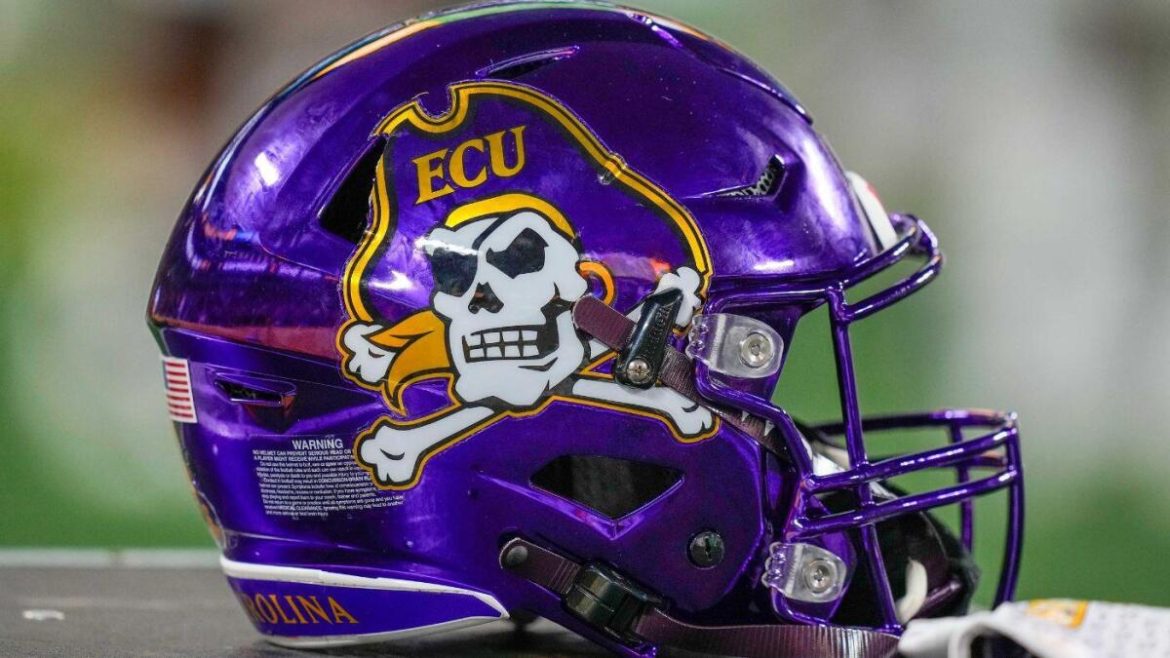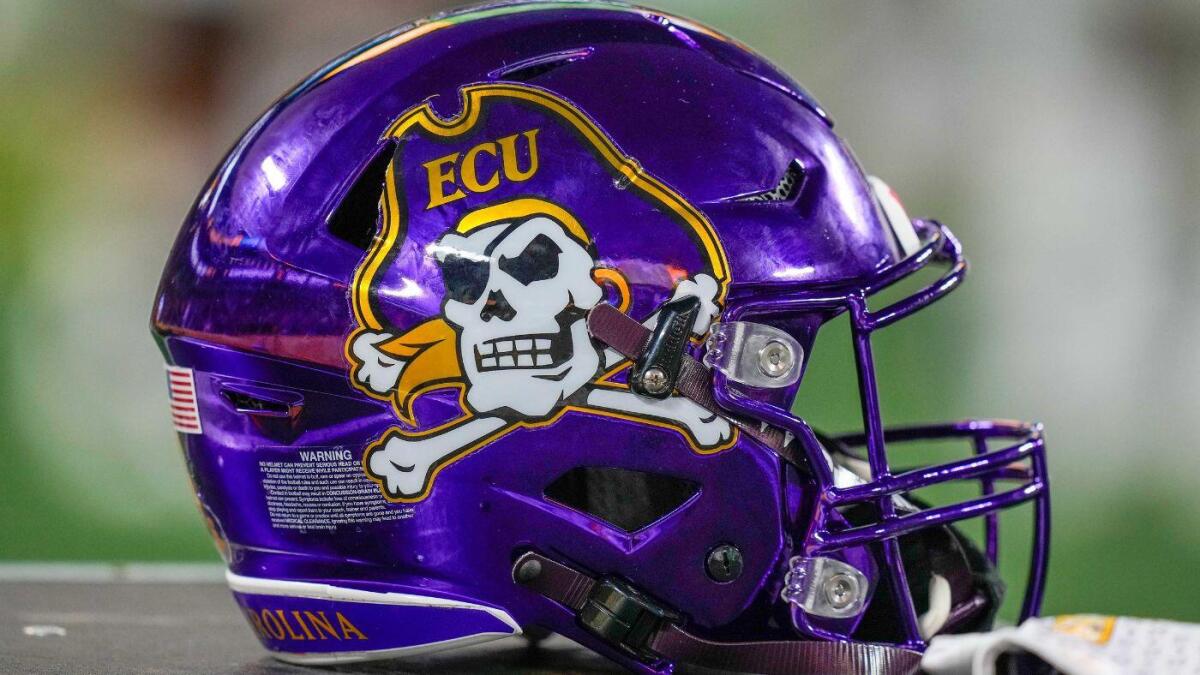The East Carolina University Football Players’ Suspension: A Comprehensive Analysis
Introduction
The recent suspension of three East Carolina University (ECU) football players—J.D. Lampley, Preston Carr, and Brock Spalding—following their arrest for discharging a firearm within Greenville city limits has sparked widespread discussion. This incident, which occurred in the early hours of July 20th, has raised critical questions about player conduct, team discipline, and the broader implications for the university’s reputation. This report delves into the details of the incident, the legal and institutional responses, and the potential long-term consequences for the players and the ECU football program.
The Incident and Arrest
The Greenville Police Department responded to a “shots fired” call at a residence on Locust Drive, approximately a mile from the ECU campus. Upon arrival, officers found evidence of gunfire and arrested the three players. All three were charged with discharging a firearm within city limits, a misdemeanor offense. Additionally, Brock Spalding faced an extra charge of resisting, delaying, and obstructing a public officer. According to reports, the players admitted to firing a gun into the air, fortunately without causing any injuries.
The Players Involved
The suspended players are key members of the ECU football team:
– J.D. Lampley: A defensive lineman known for his experience and contributions to the team’s defensive line.
– Preston Carr: Another defensive lineman, bringing depth and experience to the defensive front.
– Brock Spalding: A wide receiver whose absence will impact the team’s passing game.
Their suspension is a significant setback for the Pirates, particularly as the team prepares for the upcoming season.
University Response and Suspension
ECU Athletics responded swiftly, issuing a statement acknowledging the arrests and confirming the indefinite suspension of the three players. An indefinite suspension typically means the players are barred from all team activities, including practice, games, and team meetings, until further notice. The university’s internal review and the legal proceedings will determine the length and severity of the suspensions.
Legal Ramifications and Potential Penalties
The primary charge against the players—discharging a firearm within city limits—is a misdemeanor. Penalties for such an offense can include fines, community service, and potentially a short jail sentence. Spalding’s additional charge of resisting, delaying, and obstructing a public officer could lead to further penalties, increasing the severity of the consequences.
Beyond the legal repercussions, the players may also face consequences from the university’s student code of conduct. These consequences could range from disciplinary probation to expulsion, depending on the findings of the university’s internal investigation.
Impact on the ECU Football Program
The suspension of three key players presents a significant challenge for the ECU football program. The loss of two defensive linemen impacts the team’s depth and experience on the defensive front. Spalding’s absence at wide receiver also limits the team’s options in the passing game.
Beyond the immediate impact on the roster, the incident raises concerns about team culture and discipline. Head Coach Mike Houston will likely address the incident with the entire team, emphasizing the importance of responsible behavior and adherence to team rules and the law. The coaching staff will need to work diligently to fill the void left by the suspended players and ensure that the incident does not negatively impact team morale or performance.
Public Perception and University Image
This incident has the potential to tarnish the image of East Carolina University and its football program. News of the arrests has spread quickly through local and national media outlets, generating negative publicity for the university. The incident reinforces negative stereotypes about athletes and can erode public trust in the university’s ability to manage its athletic programs.
ECU officials will need to address the incident transparently and proactively to mitigate the damage to the university’s reputation. This may involve communicating clearly with the public about the steps the university is taking to address the situation, reinforcing the university’s commitment to responsible behavior, and highlighting the positive contributions of its student-athletes.
Past Incidents and Program History
While not detailed in the provided articles, it is important to consider this incident within the context of ECU football’s past. Has the program faced similar issues in the past? Are there existing policies and procedures in place to address player misconduct? Understanding the program’s history and track record can provide valuable insights into the current situation and inform the university’s response.
The Broader Context of Collegiate Athlete Conduct
The incident involving the ECU football players is part of a larger national conversation about the conduct of collegiate athletes. High-profile incidents involving athletes at other universities have raised concerns about the pressures faced by student-athletes, the role of universities in shaping their behavior, and the accountability of athletic programs. This incident serves as a reminder of the challenges involved in managing the behavior of young athletes and the importance of providing them with the support and guidance they need to make responsible choices.
Moving Forward: A Call for Accountability and Education
The suspension of the three ECU football players represents a crucial moment for the university and its athletic program. The incident underscores the importance of accountability, responsible behavior, and the need for ongoing education and support for student-athletes.
ECU should conduct a thorough review of its policies and procedures related to student-athlete conduct. This review should include an assessment of the effectiveness of existing educational programs, disciplinary measures, and support services. The university should also consider implementing new initiatives to promote responsible behavior and address the challenges faced by student-athletes.
Furthermore, the university should work closely with the football program to reinforce the importance of team discipline, respect for the law, and responsible citizenship. The coaching staff should serve as role models for the players and emphasize the values of integrity, accountability, and sportsmanship.
A Turning Point?
The actions taken in the aftermath of this incident will define not only the immediate futures of the suspended players but also the long-term trajectory of the ECU football program. Will this be a moment of reckoning, leading to meaningful change and a renewed focus on character development? Or will it be viewed as just another isolated incident, soon forgotten amidst the pressures of competition? The answer lies in the commitment of the university, the athletic department, and the players themselves to learn from this experience and strive for a higher standard of conduct. The future success of the ECU football program, both on and off the field, depends on its ability to cultivate a culture of responsibility, respect, and integrity.





